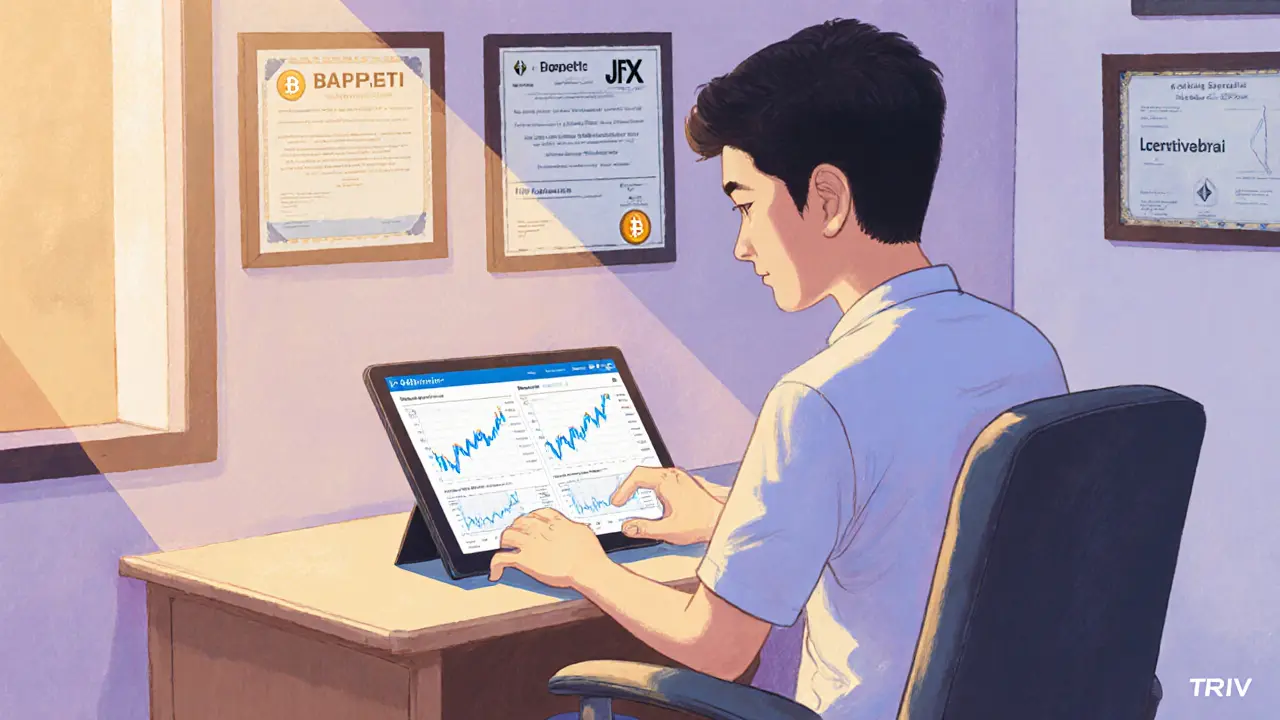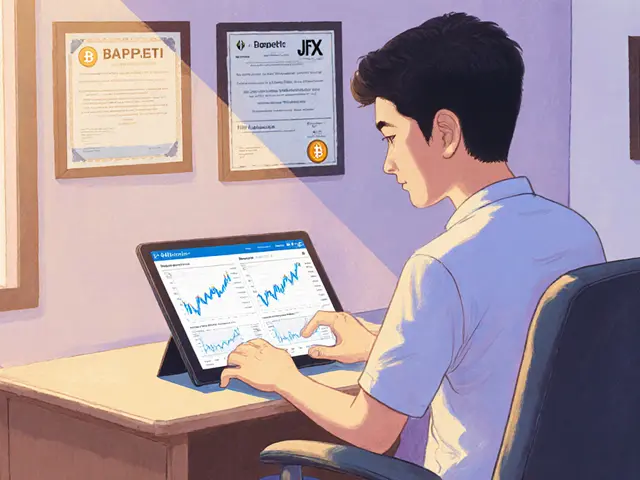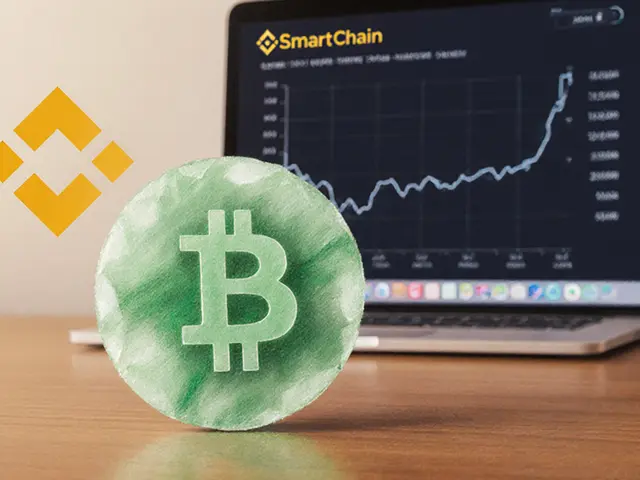TRIV Crypto Exchange Review: Is It Safe for Indonesian Retail Investors?

TRIV Futures Risk Calculator
Understand Futures Trading Risk
TRIV offers futures trading with up to 25x leverage. Leverage amplifies both gains and losses. This calculator helps you understand the potential impact of leverage on your investment. Remember: higher leverage means higher risk.
Disclaimer: This calculator is for educational purposes only. Cryptocurrency trading involves high risk. Never invest more than you can afford to lose. TRIV does not have an investor protection fund.
If you're in Indonesia and looking to trade crypto with a platform that's actually licensed locally, you've probably heard of TRIV. It's not Kraken. It's not Binance. But for thousands of Indonesian retail traders, it's one of the few exchanges that says it’s legal - and that matters.
What Is TRIV Crypto Exchange?
TRIV is a cryptocurrency exchange based in Jakarta, Indonesia. It launched around 2020-2021 and has grown by focusing on one thing: serving Indonesian users under local laws. Unlike global exchanges that operate in a gray zone here, TRIV is registered with Indonesia’s Commodity Futures Trading Supervisory Agency (Bappebti), the Indonesian Crypto Exchange (CFX), and the Jakarta Futures Exchange (JFX). That means, officially, it’s allowed to offer spot trading, futures contracts, staking, and crypto-backed lending to residents. Its CEO, Gabriel Rey, says TRIV was built because most global platforms don’t comply with Indonesia’s financial rules. That’s not just marketing - it’s the whole reason the company exists. You won’t find TRIV advertising in the U.S. or Europe. It’s built for Jakarta, Bandung, Surabaya - places where people need to trade crypto without stepping outside the law.What Can You Trade on TRIV?
TRIV supports trading for major cryptocurrencies like Bitcoin (BTC), Ethereum (ETH), and Solana (SOL). But what sets it apart is its futures trading. As of February 2025, TRIV launched perpetual futures contracts with up to 25x leverage. That’s high - higher than most local competitors like PINTU and PLUANG when they first rolled out similar features in late 2024. You can also stake over 25 different cryptocurrencies directly on the platform. Staking rewards vary by asset, but the minimum deposit is low: just IDR 100,000 (about $6.50 USD) or 0.0001 BTC. That’s accessible even if you’re just starting out. There’s also crypto-secured lending. You can lock up your BTC or ETH and borrow Indonesian Rupiah (IDR) against it. This is useful for people who want to access cash without selling their crypto - especially in a market where banks don’t offer crypto-backed loans.Security: The Big Question
This is where things get messy. TRIV claims to use multi-signature wallets, cold storage for most funds, SSL encryption, and two-factor authentication (2FA). Their website says they do regular security audits and even run a hacker bounty program. Sounds good, right? But here’s the problem: independent security firm Traders Union gave TRIV a security score of just 4.75 out of 10 in early 2025. That’s low. For comparison, Kraken scores above 8.5, and OKX is above 8.0. TRIV doesn’t have an investor protection fund like OKX does. If the exchange gets hacked, you’re not getting your money back. And there’s a contradiction. Traders Union says TRIV doesn’t offer 2FA. But other sources - including WikiBit and TRIV’s own support pages - say they do use “multi-factor authentication with phone codes.” So which is it? Users report mixed experiences. Some say they enabled 2FA without issue. Others say they couldn’t find the option in the app. This inconsistency is a red flag. If an exchange can’t clearly explain its own security features, how can you trust it? Also, in 2021, TRIV faced allegations of insider trading after a sharp drop in HCoin, its native token. The company called it a “technical issue,” but no public investigation ever cleared them. That history still lingers in community forums.
How to Get Started on TRIV
Signing up is straightforward - if you’re okay with giving up your privacy. 1. Go to the TRIV website or download the Android/iOS app.2. Register with your email and set a password.
3. Verify your email.
4. Complete KYC: upload a government-issued ID (KTP or passport) and a proof of address (utility bill or bank statement).
5. Wait for approval - usually 1-3 business days.
6. Deposit IDR or crypto and start trading. The KYC process is strict. If you’re used to anonymous crypto trading, TRIV won’t be for you. But if you want to stay compliant with Indonesian law, this is the price.
TRIV vs. Other Indonesian Exchanges
TRIV isn’t the only game in town. PINTU and PLUANG are its main local rivals. All three offer spot trading, staking, and now futures with leverage. But TRIV is the only one that explicitly markets itself as being fully regulated under Bappebti, CFX, and JFX. PINTU has a cleaner app interface and better customer support in English. PLUANG offers more educational content for beginners. But TRIV leads in futures volume and has the most aggressive leverage options. The trade-off? TRIV’s security reputation is weaker. PINTU and PLUANG don’t have the same 4.75/10 security score - they’re not perfect, but they’re not flagged as high-risk by third-party analysts either.
Is TRIV Right for You?
Here’s who should use TRIV:- You live in Indonesia and want to trade crypto legally under local law.
- You’re comfortable with high-risk futures trading (25x leverage is dangerous if you don’t know what you’re doing).
- You don’t mind KYC and are okay with limited international support.
- You’re not investing more than you can afford to lose.
- You want an investor protection fund - TRIV doesn’t have one.
- You’re an international user - TRIV doesn’t serve anyone outside Indonesia.
- You need top-tier security - its 4.75/10 score is below industry minimums.
- You’re looking for 24/7 live chat support in English - it’s mostly Indonesian-language only.
The Regulatory Wild Card
Indonesia’s crypto rules are still changing. In January 2025, the government planned to move crypto oversight from Bappebti to the Financial Services Authority (OJK). But that transfer got delayed because new laws weren’t ready. That means TRIV’s legal status could shift again. If OJK takes over and sets stricter rules, TRIV might need to upgrade its systems - or risk losing its license. If the rules stay the same, TRIV keeps its edge as the only exchange fully aligned with current regulations. It’s a gamble. But for many Indonesians, it’s the only gamble they feel is legal.Final Verdict
TRIV isn’t the safest crypto exchange in the world. It’s not even close. But if you’re in Indonesia and want to trade crypto without breaking local laws, it’s one of the few options that says it’s allowed. The futures trading is powerful. The minimum deposit is low. The regulatory backing is real - for now. But the security flaws are serious. The lack of an investor fund. The conflicting claims about 2FA. The history of insider trading allegations. These aren’t minor issues. They’re dealbreakers for anyone serious about protecting their assets. Use TRIV only if:- You understand the risks.
- You’re trading with money you can afford to lose.
- You’re okay with being part of a local, not global, ecosystem.
Is TRIV crypto exchange legal in Indonesia?
Yes, TRIV is legally registered with Indonesia’s Commodity Futures Trading Supervisory Agency (Bappebti), the Indonesian Crypto Exchange (CFX), and the Jakarta Futures Exchange (JFX). It’s one of the few exchanges in the country with official approval to offer spot trading, futures, and staking services under local law.
Does TRIV offer two-factor authentication (2FA)?
There’s conflicting information. TRIV’s website and some user reports say it supports 2FA via phone codes. But independent security firm Traders Union claims TRIV does not offer it. Users have reported difficulty finding the 2FA option in the app. Until TRIV provides clear, consistent documentation, treat this as uncertain.
What is TRIV’s security score?
According to Traders Union’s 2025 security evaluation, TRIV received a score of 4.75 out of 10. This is considered low compared to global exchanges like Kraken (8.5+) or OKX (8.0+). The low score reflects lack of Tier-1 regulation, no investor protection fund, and unverified security features.
Can I trade futures on TRIV?
Yes. Since February 2025, TRIV offers perpetual futures contracts on Bitcoin, Ethereum, and Solana with up to 25x leverage. This is one of its main selling points, especially compared to other Indonesian exchanges that launched similar features later in 2024.
What’s the minimum deposit on TRIV?
The minimum deposit is IDR 100,000 (about $6.50 USD) or 0.0001 BTC. This makes it accessible for beginners, especially compared to global exchanges that often require $10-$100 minimums.
Does TRIV have an investor protection fund?
No. Unlike OKX or Binance, TRIV does not have a reserve fund to reimburse users if funds are lost due to a hack or platform failure. This is a major risk for users, especially when trading with leverage.
Is TRIV available outside Indonesia?
No. TRIV is designed exclusively for Indonesian residents. The platform requires local ID verification (KTP), supports only IDR deposits, and provides customer support primarily in Bahasa Indonesia. International users cannot register or trade.
What happened with HCoin on TRIV in 2021?
In 2021, HCoin - TRIV’s native token - experienced a sudden and sharp price drop. Some users accused the exchange of insider trading. TRIV denied the claims, calling it a “technical issue.” No official investigation was conducted or made public, and the event remains a point of controversy in community discussions.
Will TRIV survive Indonesia’s regulatory changes?
It depends. Indonesia planned to shift crypto oversight from Bappebti to OJK in early 2025, but the transition was delayed due to incomplete regulations. TRIV’s future hinges on whether it can adapt to stricter OJK rules. If it does, it may stay dominant. If not, it could lose its license or fall behind competitors who adapt faster.
Should I use TRIV for long-term crypto storage?
No. No exchange - not even the most secure ones - should be used for long-term storage. TRIV’s security score is low, and it lacks an investor protection fund. If you’re holding crypto for months or years, move it to a hardware wallet like Ledger or Trezor after trading.







TRIV is such a mess but honestly I get why people use it. If you’re in Indonesia and you don’t want to get flagged by the tax man or worse, you’re stuck with this or nothing. I’ve used it for staking my ETH and it’s fine as long as you don’t leave big sums there. I move everything to my wallet after a week.
TRIVs security score is a joke 4.75 out of 10 means theyre barely above a sketchy Telegram bot and the 2FA thing is wild some users say they can turn it on others say its not there maybe its a regional rollout glitch or maybe theyre just lying to regulators
People act like TRIV is the only option but they ignore the fact that Binance and Kraken are blocked in Indonesia not because theyre illegal but because they refuse to comply with local bureaucracy. TRIV is not safe it is convenient and convenience is the new risk tolerance for retail traders in emerging markets. If you think this is sustainable you are delusional.
Hey everyone I get that TRIV has issues but if you're just starting out and you live in Jakarta or Surabaya this is actually one of the few ways to get into crypto legally without jumping through a million hoops. The minimum deposit is insane low and the futures are a great learning tool if you use small amounts. Just dont put your life savings in it and always use a hardware wallet after trading. You got this 💪
The real question isnt whether TRIV is safe its whether regulatory capture in emerging markets is just a new form of financial colonialism where local platforms become proxies for state control under the guise of compliance. TRIVs existence is less about innovation and more about the commodification of legal ambiguity. Also their app has a typo in the footer
I live in the US but my cousin in Bandung uses TRIV and swears by it. She said the support team helped her fix a deposit issue within 12 hours even though it was a weekend. I know the security score is low but sometimes real human help matters more than a fancy audit. Just keep small amounts there and use cold storage for the rest 🌿
TRIV is the crypto equivalent of that one local mom-and-pop shop that sells the best sambal in town but uses a plastic bag for packaging. You know the ingredients are legit and the flavor is unmatched but you also know if the roof falls in you’re outta luck. Still you go back because it’s homegrown and it works for you. That’s Indonesia for you.
Yeah I use TRIV for staking and its fine. I dont trade futures though too risky for me. I just leave my small amount of BTC there and collect rewards. Never had an issue. The KYC is annoying but I get why its needed.
Regulatory arbitrage is not innovation it is institutionalized risk transfer. TRIV operates within a legal vacuum created by bureaucratic inertia. The 4.75 security score is not a bug it is a feature of the business model. Users are not customers they are liability acceptors. The exchange does not serve investors it serves compliance metrics
Of course TRIV doesn't have 2FA. Theyre owned by a shell company registered in the Caymans that was dissolved in 2022. The whole thing is a front for money laundering. That HCoin crash? Totally intentional. They dumped it on retail traders while insiders cashed out. The Bappebti? Bought and paid for. You think this is crypto? This is a state-sponsored pyramid scheme with better UI
Im from the US but I follow Indonesian crypto stuff because my roommate is from Jakarta. He told me TRIVs app is actually super smooth and the customer service in Bahasa is way better than what you get from global exchanges. I dont trust it for big money but for learning? Maybe. Just dont be dumb about it
Its funny how people panic about the 4.75 security score but ignore that every single major exchange has been hacked at least once. The real issue is the lack of investor protection. If you lose your money on TRIV you have zero recourse. Thats not a flaw its the entire business model. Youre paying for convenience not security
Look I know TRIV looks sketchy and yeah the security score is terrible but I’ve been using it since 2022 and I’ve never lost a cent. I only stake small amounts and I always withdraw to my Ledger after a few days. The futures are tempting but I stick to spot. For someone starting out in Indonesia this is the only way to get real exposure without getting blocked by global exchanges. Just be smart dont be greedy and youll be fine. You dont need Kraken to learn crypto
TRIV is fine if you treat it like a prepaid card not a bank. I use it to buy small amounts of BTC and then move it. No big deals. The 2FA thing is confusing but I found it buried under settings not on the main screen. Probably a UI fail not a security fail
The fact that TRIV is the only exchange with Bappebti approval says more about the state of Indonesian regulation than it does about TRIVs legitimacy. Compliance does not equal safety. It equals paperwork. The real question is whether any exchange can be truly secure when the regulator itself is underfunded and politically vulnerable
I dont use TRIV but I read the reports. The mixed 2FA reports are the biggest red flag. If a company cant even consistently implement basic security features across its user base then how can you trust their audits? It suggests internal chaos not just bad security
Anyone using TRIV is a fool. 25x leverage on a platform with no investor fund and a 4.75 security score? Youre not trading crypto youre gambling with your rent money. And the fact that people call it 'legal' is pathetic. Legal doesnt mean safe it just means they paid the right people
TRIV is the only responsible choice for Indonesian traders. Global exchanges are like foreign banks that dont care about your country. TRIV follows the law. The security score is low because they dont have billions to spend on audits. But they are compliant and that is what matters. You should be proud to support local innovation
Why are people surprised TRIV has issues? Theyre a startup with no funding round and a CEO who used to sell phone cases on Shopee. The fact they got licensed at all is a miracle. The 2FA problem? Probably just bad documentation. The real story is how they pulled this off in a country where even Uber struggled
Wait so TRIV is legal but its security score is worse than a crypto rug pull? That makes sense. The regulators are just trying to look like theyre doing something while letting the real predators operate under the guise of compliance. Classic. The 2FA contradiction? Obviously intentional. They want you to feel safe so you leave your coins there
TRIV is the perfect metaphor for modern Indonesia. Loud promises. Hidden rot. A facade of order. The CEO says they built it for Jakarta but they built it for the regulators. The real users? Theyre just the collateral damage waiting to happen. That HCoin crash wasnt a technical issue. It was a warning shot
I spent weeks reading through Reddit threads and forum posts about TRIV. The user experiences are all over the place. Some say the app crashes every time they try to withdraw. Others say it’s the most reliable thing they’ve used. The lack of consistency makes me think there’s something deeper going on-maybe regional server issues, maybe intentional throttling, maybe just poor engineering. Either way, it’s not a good sign
TRIVs biggest strength is also its biggest weakness. Being the only compliant exchange means they have zero competition in the legal space. That kind of monopoly power means they can afford to be sloppy. Why fix 2FA if no one else can legally offer futures? They’re not incentivized to improve-they’re incentivized to keep the license
Just saw someone say TRIV has investor protection. Nope. Zero. I checked their TOS. It literally says 'user bears all risk'. I think people confuse 'licensed' with 'insured'. Big difference.